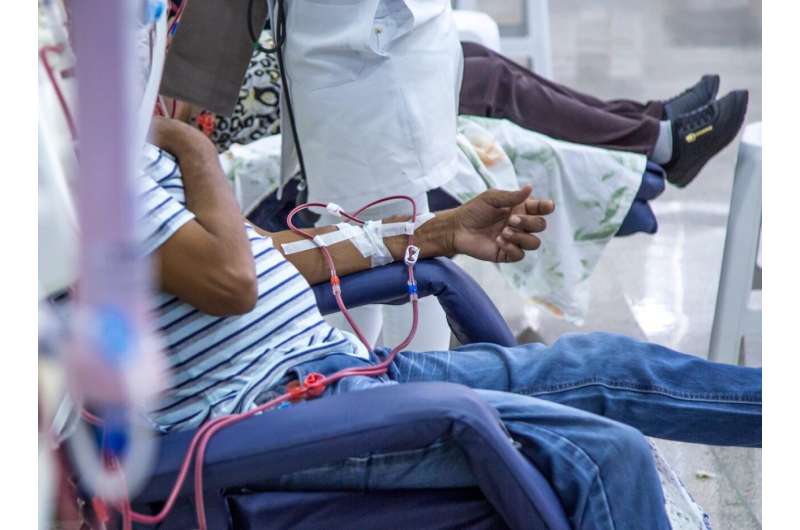Unstable housing before starting dialysis is associated with an increased risk for all-cause mortality among veterans receiving dialysis, according to a study published online Nov. 21 in JAMA Network Open.
Tessa K. Novick, M.D., from the University of Texas at Austin Dell Medical School, and colleagues examined factors associated with unstable housing among U.S. veterans receiving dialysis in a retrospective cohort study using data from the U.S. Veterans Health Administration and the U.S. Renal Data System. Data were included for 25,689 veterans; 771 (3 percent) had a positive screen for unstable housing within a three-year period before dialysis initiation.
The researchers found that Hispanic ethnicity, non-arteriovenous fistula vascular access, lack of predialysis nephrology care, and non-Medicare insurance were factors associated with unstable housing. Higher all-cause mortality was seen for veterans with unstable housing (adjusted hazard ratio, 1.20 for a median age of 68 years), and the risks increased with age. In an age-stratified analysis, higher mortality was seen in association with unstable housing among veterans aged 75 to 85 years (adjusted hazard ratio, 1.64), but the associations were not seen for other age groups.
"Further efforts are needed to understand the experiences of older adults with unstable housing and to estimate the scope of unstable housing among all individuals receiving dialysis," the authors write.
Two authors disclosed ties to the pharmaceutical industry.
More information: Tessa K. Novick et al, Unstable Housing and Mortality Among US Veterans Receiving Dialysis, JAMA Network Open (2023). DOI: 10.1001/jamanetworkopen.2023.44448
Journal information: JAMA Network Open
Copyright © 2023 HealthDay. All rights reserved.
























